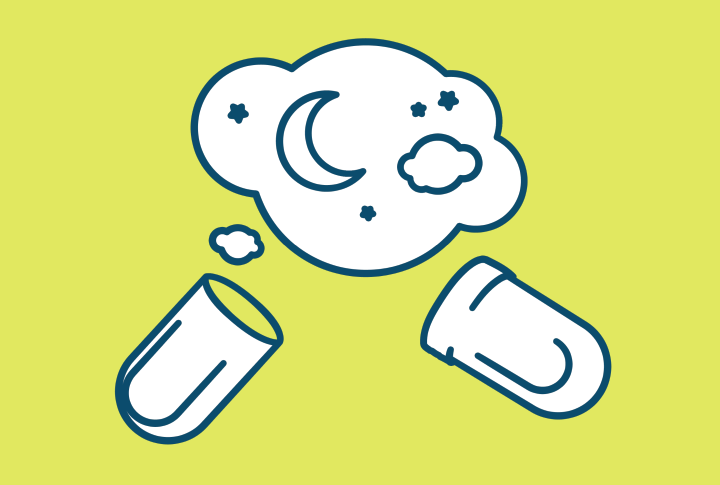To provide services at the highest level, we use cookies. Using the website requires you to choose settings related to their storage on your device. If you want to know what each type of cookie is used for, click the Details button below.
The dark side of melatonin on sleep. Is it worth taking? 22 lipca 2022 |
 |
When we have difficulty falling asleep, many people advise us to take melatonin for sleep. This is because melatonin is increasingly advertised as a miraculous remedy for insomnia. Most preparations described by manufacturers as melatonin for sleep can be bought without a prescription. Although melatonin is a hormone, it is sold as a dietary supplement in Poland, which should not be the case.
In 1994, scientists at the Massachusetts Institute of Technology (MIT) discovered in their laboratories that melatonin given in tablets helps with falling asleep. Volunteers were divided into two groups, the experimental group and the control group. Those in the experimental group received small doses of melatonin before bedtime, while the control group received a placebo.
It was found that people taking melatonin for sleep fell asleep on average within 5 minutes, while with a placebo, it took about 15 minutes. Since the publication of the research results, the world has been enthusiastic about this hormone, without considering or paying attention to the possibility of melatonin overdose. When reporting this discovery, the media often ignored the contraindications for taking melatonin for sleep. It was hailed as a breakthrough in the fight against insomnia, increasing its sales.
It was widely called melatonin the only natural substance that is supposed to be an alternative to sleeping pills, which are not always safe. It was particularly recommended for people working in shift systems and those experiencing sleep difficulties due to stress, among other reasons. Many people also take it because of pain caused by discopathy or other spine-related conditions.
However, the enthusiasm of many patients and journalists regarding the supposed impossibility of melatonin overdose was not shared by the scientific community. Doctors acknowledged that melatonin in tablets can be helpful in treating sleep problems, but it was recommended only for older people, i.e., the elderly. This is because the calcification of the pineal gland, the gland that naturally produces melatonin, progresses with age. For other individuals, caution was advised when taking melatonin for sleep.
Already around two years after the publication of the scientific research conducted at the Massachusetts Institute of Technology, Professor Richard Wurtman, a neurobiologist from the same institution, issued a statement strongly emphasizing that no one should self-administer supplements containing melatonin for sleep. He called for the withdrawal of dietary supplements containing melatonin from pharmacies due to the risk of melatonin overdose, which was possible.
Many people believe that melatonin for sleep is completely safe and consider it an alternative to sleeping pills, so thinking about its overdose or contraindications for taking melatonin for sleep is not very popular. However, improperly used melatonin can exacerbate sleep disturbances and, as a result, even disrupt the hormonal system. Importantly, melatonin for sleep should not be used by children without clear medical indications.
Yes, melatonin can help improve the quality of sleep. However, its effectiveness is most noticeable in older individuals whose pineal gland does not naturally produce it in the right amount. It is not recommended to use melatonin in younger individuals, as it can lead to a range of side effects.
Melatonin cannot cause physical addiction. Taking it does not lead to that type of dependency. However, there is a risk of psychological dependence on melatonin, as such dependence can apply to many different substances, behaviors, and aspects of life. Additionally, the body may become tolerant to melatonin, requiring higher doses.
Melatonin can have side effects, although manufacturers often do not mention them. The most significant of these side effects include worsening sleep disorders and potential disruption of the hormonal system. Large doses of melatonin can also lead to hypothermia.
Yes, you can overdose on melatonin. It is a hormone that affects the entire hormonal balance of the body. Taking large doses of melatonin can lead to a decrease in body temperature and potentially induce hypothermia.
If you decide to use melatonin tablets, it is recommended not to take more than 1mg per day before sleep. This dose is usually sufficient to achieve a positive effect without the risk of overdose. However, remember that melatonin is primarily recommended for older individuals, and its use in younger people may not be advisable.
| Thank you for adding a comment! |